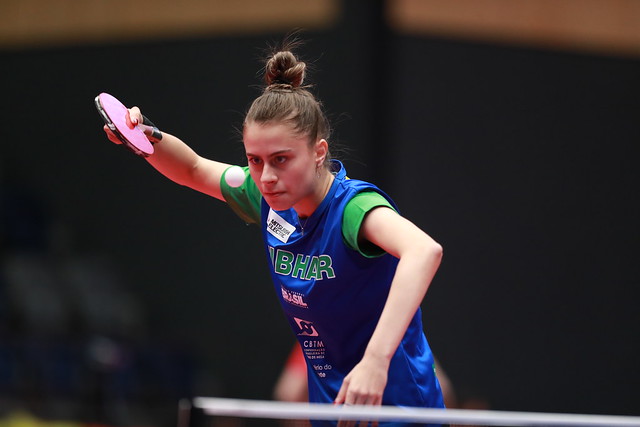by Ian Marshall, Editor
Furthermore, en route to gold in Bendigo, just one match was surrendered; that being two days earlier at the quarter-final stage against the United States, when Kanak Jha had beaten Xu Haidong in the opening match of the engagement (11-7, 11-9, 9-11, 10-12, 11-6).
Notably, Xu Haidong did not appear in the gold medal engagement in Bendigo. Last year when Japan had also been the adversaries in the final, he had brought matters to an end by beating Masaki Takami (11-9, 11-6, 11-4). In the Australian city, Yu Heyi lined up alongside Xu Yingbin and Xiang Peng.
Yu Heyi gave China the perfect start by beating Yuta Tanaka (8-11, 12-10, 11-3, 11-8), like Xu Haidong present in last year’s final, when losing in the second match to Wang Chuqin (11-6, 8-11, 11-6, 11-6). The champions elect in the ascendancy, Xu Yingbin doubled the advantage by overcoming Yukiya Uda (11-8, 11-7, 9-11, 11-5), before Xiang Peng brought matters to a conclusion. He accounted for Shunsuke Togami (12-10, 11-9, 11-9).
Success for China and yet another success for the country that sets the example for others to follow, it was the 14th time, since the tournament was first staged in the Chilean capital city of Santiago in 2003, that China had reserved the top step of the podium.
Moreover, it is from that final Xu Haidong can take heart; China recovered from a two matches to nil deficit to beat Chinese Taipei. They selected Li Hu, Zheng Changgong and Zhang Jike; the player resigned to bench duty, a certain Ma Long!







